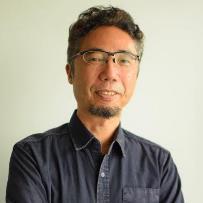SoAIR2019
17-24 March 2019, Shonan Village, Japan
Invited Speakers
- Jun Tani, Okinawa Institute of Science and Technology (OIST), Japan
 Title: Exploring Robotic Minds by Using the Frameworks of Predictive Coding and
Active Inference
Title: Exploring Robotic Minds by Using the Frameworks of Predictive Coding and
Active Inference
Abstract : My research has investigated how cognitive agents acquire structural representation via iterative interaction with their environments, exercising agency and learning from resultant perceptual experience. Over the past two decades, my group has tackled this problem by applying predictive coding and active inference to development of cognitive constructs of robots. Under the principle of predictive coding, intense interaction occurs between top-down intention, which acts proactively on the outer world, and the resultant bottom-up perceptual reality accompanied by prediction error. We have found that compositionality, which enables some conceptualization, including senses of minimal self and narrative self, can emerge via iterative interactions, as a result of downward causation in terms of constraints such as multiple spatio-temporal scale properties applied to neural network dynamics. Finally, I will introduce our recent results that may account for how abnormal development leads to some developmental diseases, including autism spectrum disorders (ASD) and schizophrenia, which may be caused by different types of failures in the top-down bottom-up interaction.
Bio: Jun Tani received the B.S. degree in mechanical engineering from Waseda University, Tokyo, Japan in 1981, dual M.S. degree in electrical engineering and mechanical engineering from the University of Michigan, Ann Arbor, MI, USA in 1988, and the D.Eng. degree from Sophia University, Tokyo in 1995. He started his research career with Sony Laboratory, Tokyo, in 1990. He had been a Team Leader of the Laboratory for Behavior and Dynamic Cognition, RIKEN Brain Science Institute, Saitama, Japan, for 12 years until 2012. He was a Visiting Associate Professor with the University of Tokyo, Tokyo, from 1997 to 2002. He was a Full Professor with the Electrical Engineering Department, Korea Advanced Institute of Science and Technology, Daejeon, South Korea, from 2012 to 2017. He is currently a Full Professor with the Okinawa Institute of Science and Technology, Okinawa, Japan. His current research interests include neural network modeling, psychology, phenomenology, complex adaptive systems, and cognitive robotics. He is an author of "Exploring Robotic Minds: Actions, Symbols, and Consciousness as Self-Organizing Dynamic Phenomena." published from Oxford Univ. Press in 2016.